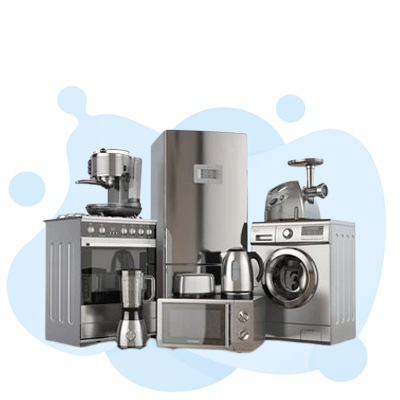CFESA Test: Your Path to Foodservice Excellence

The Commercial Food Equipment Service Association (CFESA) is the trade association dedicated to servicing commercial kitchen equipment. Earning a certification from CFESA can significantly elevate your career in the foodservice industry, demonstrating your expertise and commitment to excellence. This article will explore the importance of CFESA certification, best practices in equipment repair and maintenance, and the wide range of opportunities available to CFESA-certified technicians.
Free CFESA Practice Test Online
Key Takeaways:
- Timely repairs minimize downtime and maintain productivity.
- CFESA-certified technicians provide high-quality service.
- Preventive maintenance extends equipment lifespan and prevents breakdowns.
- CFESA certification signifies a high level of expertise.
- The certification process includes rigorous training and testing.
- Certified technicians commit to continued education to stay updated with industry advancements.
Commercial Kitchen Equipment Repair Services
In the fast-paced foodservice industry, the proper functioning of commercial kitchen equipment is essential. Downtime can lead to significant losses and disruptions in service, making professional repair services indispensable.
Importance of Timely Repairs: Timely repairs ensure that kitchen operations continue smoothly without unnecessary interruptions. Skilled technicians can diagnose and fix issues quickly, minimizing downtime and maintaining productivity.
Quality of Service: CFESA-certified technicians are trained to provide high-quality repair services. They adhere to industry standards and best practices, ensuring that equipment is repaired correctly and efficiently.
Preventive Maintenance: Regular maintenance can prevent breakdowns and extend the lifespan of kitchen equipment. Preventive maintenance services include routine inspections, cleaning, and adjustments to keep equipment running optimally.
CFESA Certified Technicians: Skilled Foodservice Experts
CFESA certification is a mark of excellence for technicians in the foodservice industry. It signifies that a technician has met rigorous standards and possesses the skills and knowledge necessary to perform at the highest level.
Certification Process: The certification process involves comprehensive training and testing. Technicians must demonstrate their proficiency in various areas, including electrical, gas, steam, and refrigeration systems.
Benefits of Certification: Certification enhances a technician’s credibility and career prospects. It assures employers and clients that the technician is well-trained and capable of providing top-notch service.
Continued Education: CFESA-certified technicians are required to stay current with the latest industry advancements and technologies. This commitment to ongoing education ensures that they remain at the forefront of the industry.
Foodservice Equipment Maintenance: Keep It Running
Effective maintenance is critical to the longevity and performance of foodservice equipment. Properly maintained equipment operates more efficiently and is less likely to break down.
Routine Inspections: Regular inspections help identify potential issues before they become major problems. Technicians check for signs of wear and tear, leaks, and other issues that could affect performance.
Cleaning and Lubrication: Keeping equipment clean and properly lubricated is essential for optimal operation. Regular cleaning prevents buildup that can lead to malfunctions, while lubrication ensures that moving parts function smoothly.
Adjustments and Calibration: Regular adjustments and calibration ensure that equipment operates within the manufacturer’s specifications. This includes checking and adjusting temperatures, pressures, and other operational settings.

- Regular inspections help identify potential issues early.
- Cleaning and lubrication are essential for optimal operation.
- Adjustments and calibration ensure equipment operates within specifications.
Restaurant Equipment Services: Expert Solutions
Restaurant equipment services encompass a wide range of tasks, from installation and setup to repair and maintenance. Expert solutions ensure that all aspects of equipment management are handled professionally and efficiently.
Installation and Setup: Proper installation and setup are crucial for the safe and efficient operation of kitchen equipment. CFESA-certified technicians ensure that equipment is installed according to manufacturer guidelines and industry standards.
Emergency Repairs: When equipment breaks down unexpectedly, emergency repair services are essential. Skilled technicians can quickly diagnose and repair issues, minimizing downtime and ensuring that operations can resume promptly.
Parts Replacement: Over time, parts may wear out and need replacement. CFESA-certified technicians use high-quality, manufacturer-approved parts to ensure that replacements are reliable and long-lasting.
- Proper installation and setup are crucial for safe operation.
- Emergency repair services minimize downtime.
- High-quality parts replacements ensure reliability and longevity.
Expert Equipment Technicians: Your Repair Pros
Expert equipment technicians are the backbone of the foodservice industry, ensuring that kitchens run smoothly and efficiently. Their expertise covers a wide range of equipment and systems, making them invaluable assets to any foodservice operation.
Comprehensive Knowledge: CFESA-certified technicians possess comprehensive knowledge of various equipment types and systems, including ovens, grills, fryers, refrigerators, and more. This versatility allows them to handle a wide range of repair and maintenance tasks.
Customer Service Skills: In addition to technical expertise, CFESA-certified technicians also excel in customer service. They communicate effectively with clients, explaining issues and solutions clearly and professionally.
Problem-Solving Abilities: Expert technicians are skilled problem solvers who can diagnose and repair complex issues efficiently. Their ability to think critically and creatively ensures that problems are resolved quickly and effectively.

- CFESA-certified technicians have comprehensive knowledge of various equipment types and systems.
- They excel in customer service and communication.
- Their problem-solving abilities ensure efficient and effective repairs.
Conclusion
The Commercial Food Equipment Service Association (CFESA) plays a crucial role in maintaining the standards and quality of foodservice equipment repair and maintenance. CFESA certification is a testament to a technician’s expertise, dedication, and commitment to excellence. By ensuring that kitchen equipment operates efficiently and reliably, CFESA-certified technicians contribute significantly to the success of foodservice operations. Whether you are a technician seeking certification or a foodservice operator in need of expert services, CFESA is the key to foodservice excellence.
FAQs
What is CFESA certification?
CFESA certification is a credential awarded by the Commercial Food Equipment Service Association to technicians who have demonstrated proficiency in servicing commercial kitchen equipment. The certification process involves comprehensive training and testing in various areas, including electrical, gas, steam, and refrigeration systems.
How do I become CFESA certified?
To become CFESA certified, you must complete the required training and pass the certification exams. The process includes hands-on training and theoretical education to ensure that you have the necessary skills and knowledge to perform at a high level.
What are the benefits of CFESA certification?
The benefits of CFESA certification include enhanced job opportunities, increased credibility, and higher earning potential. Certification demonstrates your expertise and commitment to excellence, making you a valuable asset to employers and clients.
Are there any prerequisites for CFESA certification?
Prerequisites for CFESA certification may vary, but generally, candidates should have a background in electrical, gas, steam, or refrigeration systems. Relevant work experience and technical education can also be beneficial in preparing for the certification process.